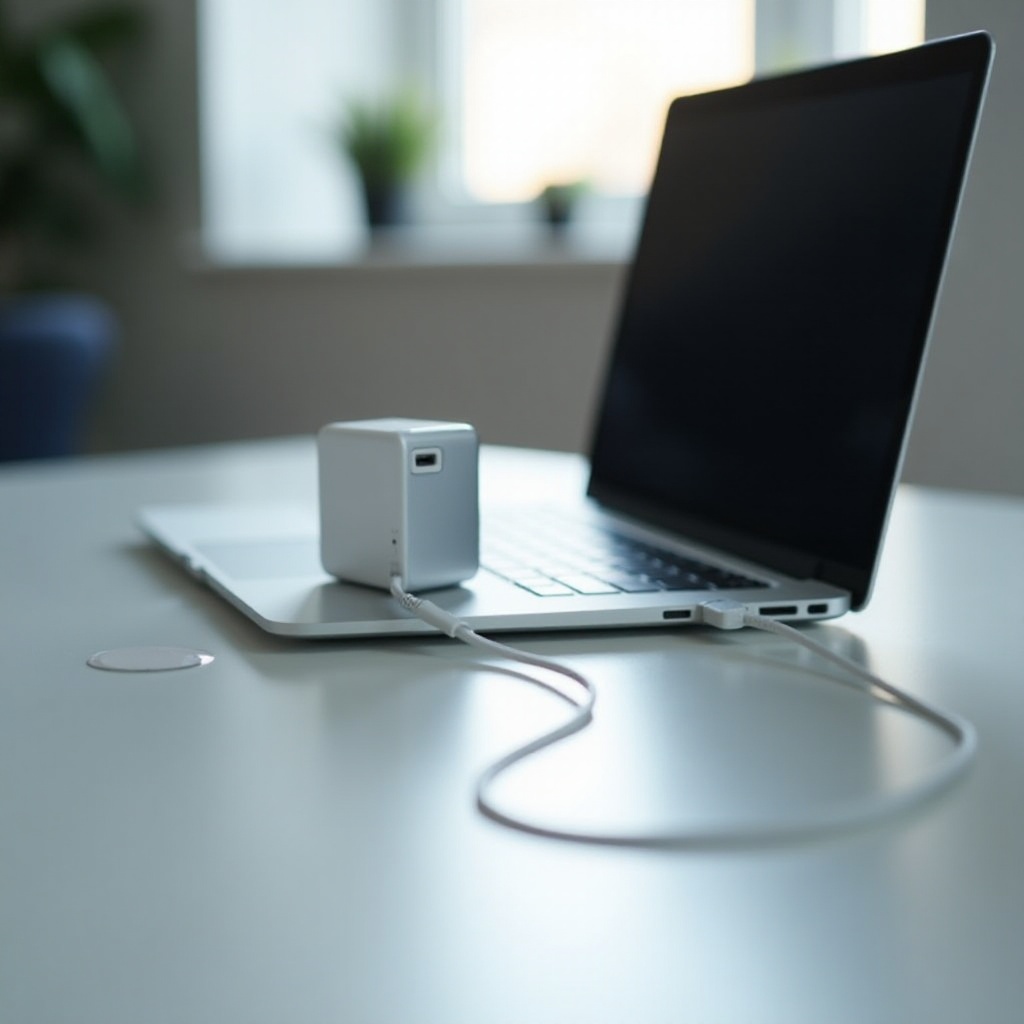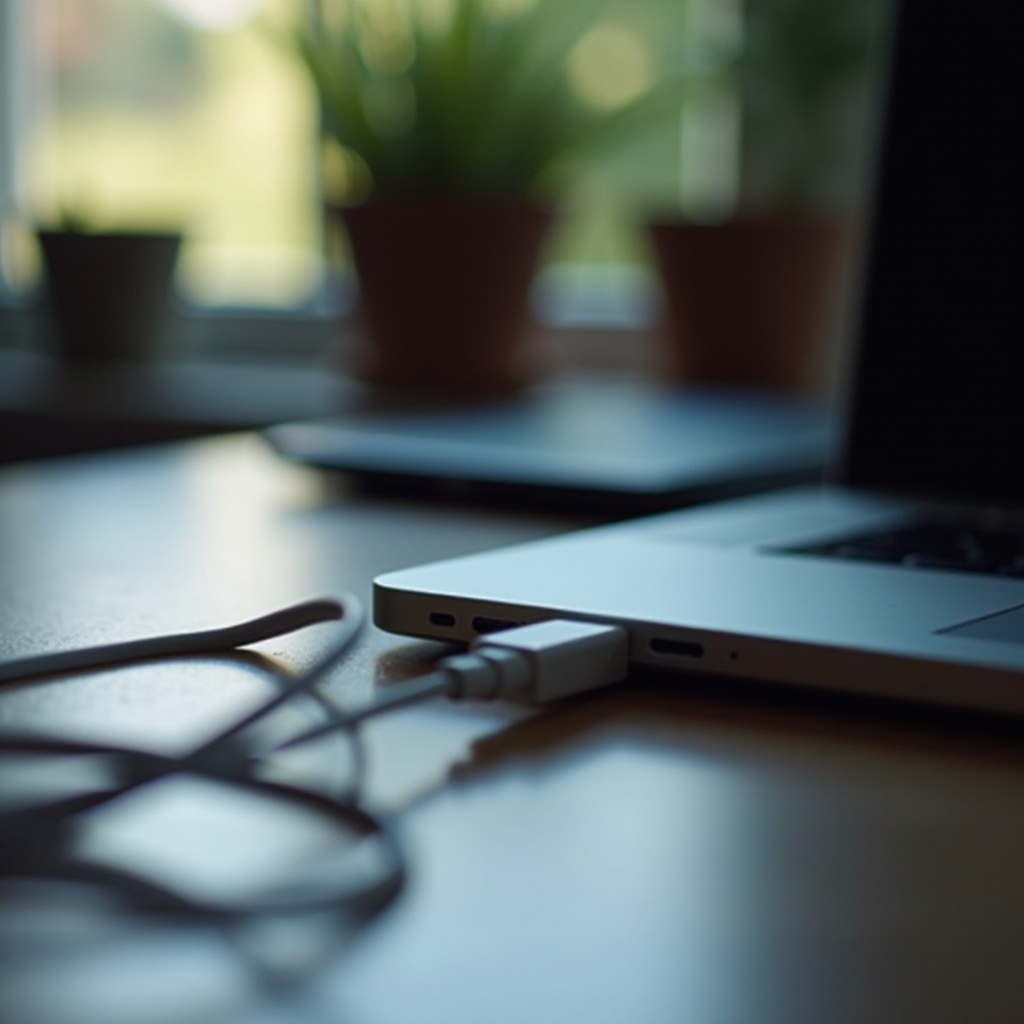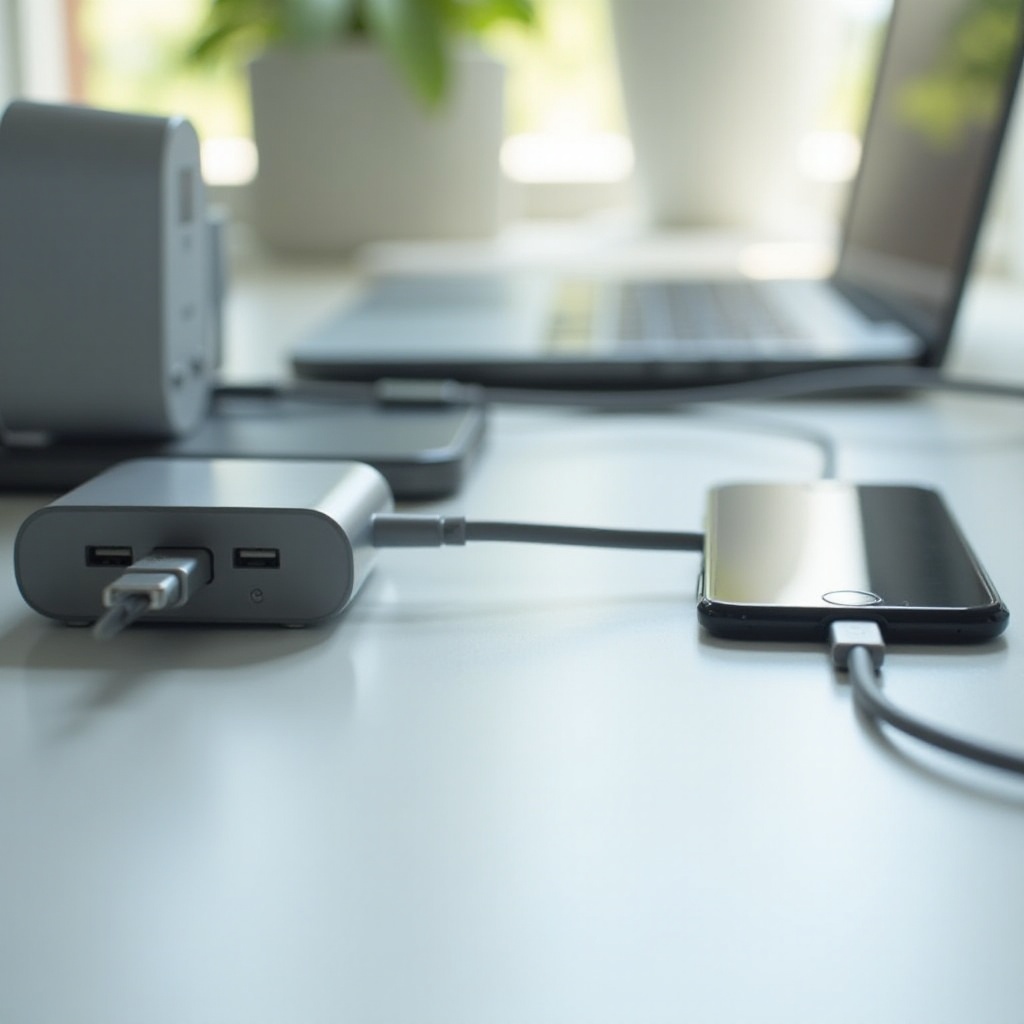Can You Charge a Laptop with a Phone Charger?
Introduction
It might seem convenient to use just one charger for multiple devices, such as a phone charger for your laptop. But is it feasible or safe? You're not alone in wondering if you can charge a laptop with a phone charger. This blog aims to dive deep into the compatibility, scenarios where it might work, potential risks, and tips to safely charge your laptop with a phone charger.

Understanding Charging Port Standards
Before we get into the specifics, it's crucial to understand the various charging port standards. These standards often determine whether a phone charger can be used for your laptop.
USB-C: The Universal Connector
USB-C has gained significant popularity because of its versatility. Unlike earlier USB types, which were often device-specific, USB-C supports a variety of devices ranging from smartphones to laptops. It also supports faster data transfer speeds and higher power delivery, which is why many new devices are adopting this standard.
Differences Among Charging Ports: USB-A vs. USB-C vs. Thunderbolt
Several types of charging ports can be found on laptops and phones:
- USB-A: The traditional USB port, great for data transfer but limited in power delivery, making it less suitable for laptops.
- USB-C: While both newer phones and laptops use USB-C, not all USB-C cables support the same power delivery or data transfer capabilities.
- Thunderbolt: This is an advanced version of USB-C, boasting higher data transfer speeds and more power delivery, making it suitable for high-performance laptops.
Understanding these standards can help you make more informed choices about cross-device charging compatibility.

Phone Chargers vs. Laptop Chargers
Now that we've discussed charging port standards, let's focus on the specific differences between phone chargers and laptop chargers and why these differences matter.
Voltage and Wattage: Key Differences
Phone chargers usually deliver lower wattage, around 5 to 20 watts, whereas laptops often require 30 to 100 watts or more. Voltage – the force driving electric current – is another critical factor. Mismatched voltage can not only slow down charging but potentially harm your device.
Compatibility Issues Between Phone and Laptop Chargers
Using a phone charger for a laptop might sound convenient but is subject to compatibility issues. Apart from the different wattage and voltage requirements, many phone chargers do not have the capability to handle the high power needs of most laptops. Hence, attempting to use a phone charger can lead to slower charging or even failure to charge.

Scenarios Where It's Possible
Although it’s not typically recommended, there are scenarios where you can use a phone charger for your laptop. Let's explore these scenarios further.
Laptops With Lower Power Requirements
Some ultra-thin and lightweight laptops have lower power requirements, often in the range of 30-45 watts, making them potentially compatible with high-wattage phone chargers. For example, the Apple MacBook Air can sometimes be charged with high-wattage phone chargers due to its low power needs.
Real-World Examples and Success Stories
There are numerous accounts of individuals successfully using phone chargers for laptops under specific conditions: - Short-Term Usage: When in a pinch, users have managed to give their laptop a battery boost using high-quality phone chargers. - Same Brand Devices: Often, using devices from the same brand, like a high-wattage Samsung phone charger for a Samsung laptop, increases the chances of compatibility.
These scenarios are exceptions rather than the rule and should be approached with caution.
Potential Risks and Downsides
While it may be feasible under certain circumstances, using a phone charger for your laptop comes with risks. Let's delve into some of the potential downsides.
Underpowered Charging: Long-Term Effects
Charging your laptop with a phone charger generally results in slower charging rates and may lead to underpowered charging. This can cause disruptions in usability and longer charging times, inconvenient when you need to use your laptop urgently.
Potential Battery Health Issues
More concerning are the long-term effects on your laptop's battery health. Underpowered or inconsistent charging cycles can degrade your laptop battery over time. Improper voltage or amperage could lead to overheating or other battery health issues, potentially shortening the lifecycle of your device.
Tips for Safely Charging Your Laptop with a Phone Charger
If you find yourself in a situation where using a phone charger is the only option, there are some guidelines to follow for safety.
Using Quality Cables and Adapters
Invest in high-quality, branded cables and adapters. Poor-quality accessories can result in inconsistent power delivery and pose a risk to both your laptop and phone charger.
Consulting Manufacturer Guidelines
Always check the manufacturer’s guidelines for both your laptop and phone. Some brands will specify whether their products support cross-device charging and under what conditions it can be safely done.
Conclusion
Charging your laptop with a phone charger is possible in specific scenarios, especially if your laptop has lower power requirements and you use a high-wattage phone charger. However, potential risks like slower charging and battery health degradation should be considered. Always follow safety guidelines to minimize these risks.
Frequently Asked Questions
Can charging my laptop with a phone charger damage the battery?
Using a phone charger with insufficient wattage might lead to underpowered charging, potentially causing long-term battery health issues.
What are the signs of underpowered charging?
Slow charging rates and your laptop not fully charging even after being plugged in for extended periods are common signs.
Which laptops support charging with phone chargers?
Laptops with lower power requirements such as certain models of MacBook Air or Chromebooks might support charging with high-quality, high-wattage phone chargers. Always consult the manufacturer's guidelines for clarity.



